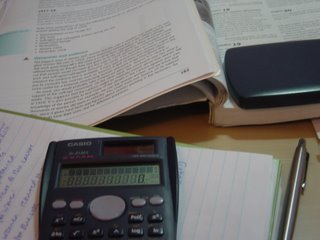A while ago, my mother recorded a program on TV, which showed Urdu poets reciting their poetry. One woman, Zehra Nigah, recited the most profound poem that I have come across for a long time.
It was such a touching poem that I decided to tell the world about it! The following is a transcript and attempted translation by me. The translation may not be exact, but it's difficult to get it just right... I've tried to match it with the theme and context of the poem.
I was going to start talking about it, but I think this is a poem that you have to discover yourself to feel its honesty.
Those of you who have done an English GCSE, and doubted that there would come a day when the "Poems from Other Cultures" Paper would ever come of any use... flex your interpretation muscles with this...
Qissa Gul Badshah Ka
The Story of Gul Badshah [Flower King - a grand Pashtun name]
Naam meira hai Gul Badshah,
My name is Gul Badshah,
Umr meiri hai teira baras,
My age is thirteen years,
Aur kahaani meiri umr ki tarha sai,
And my story, like my age, is
Muntashir, muntashir,
Broken, fragmented,
Mukhtasar, mukhtasar.
Brief, short.
Meiri bei-naam, bei-chehra maan,
My nameless, faceless mother,
Bei-dawa mar gayi,
Died cure-less,
Baap nai us ko burqai mein dafna diya;
My father buried her in her burqa;
Us ko darr tha kai Munkar Nakeer us ka chehra na daikhain.
He feared that the angels of death may see her face.
Vaisai zinda thi
Even when she was alive,
Jab bhi wo madfoon thi.
Then too was she buried.
Baap ka naam Zartaaj Gul,
My father's name was Zartaaj Gul [Gold-Crown Flower - "Zar-" can also mean extravagently expensive],
Umr battees baras.
His age 32 years.
Woh mujaahid, shahaadat ka taalib,
He, a soldier, a seeker of martyrdom,
Raah-e-haq ka musaafir hua,
Became a traveller on the path of justice,
Aur jaam-e-shahaadat bhi us nai
And from the cup of martyrdom he also drank,
Meirai chaacha kai haaton piya,
At the hands of my uncle,
Jo shumaali mujaahid tha,
Who was a northern soldier,
Aur panj-waqta namaazi bhi tha.
And was a prayerful man.
To masla is shahaadat ka peicheeda hai...
So the issue of this martyrdom is complicated...
Is ko behtar yei hi hai, yahin chorr dein.
It is better for it to be left at that.
Ab baarhaal, baba to jannat mein hai,
Anyway, Father is now in heaven,
Us ki baahon mein hoor-o-qusour,
In his arms is a woman of paradise,
Us kai haaton mein jaam-e-tahoor,
In his hands a cup of pure heavenly wine.
Meiri taqdeer main bum, dhamaakai, dhuwwaan,
Meant for me are bombs, explosions, smoke,
Pigalti hui yei zameen,
This melting earth,
Bikharta hua aasmaan.
A shattering sky.
Ba'ad az mot, wo zinda hai.
After death, he is alive.
Aur zindagi muj sai sharminda hai.
And life is ashamed of me.
Kal, sar-e-shaam, dushman nai,
Yesterday, at the tip of dusk, the enemy,
Jaatai huai,
While passing,
Bum kai ham-rah barsaa diyai,
Along with bombs, dropped
Muj pai kuch zard thailai,
On me some yellow bags,
Jin sai muj ko milai:
From which I found:
Gol roti kai tukrrai
Round pieces of bread,
Aik makkhan ki tikkya,
A stick of butter,
Aik sharbat ki botal,
A bottle of juice,
Murabbai ka dibba.
A tub of jam.
Is kai badlai mein,
In return for this,
Woh lei gayai:
They took away:
Merai bhai ka dast-e-mushaqqat,
My brother's labouring hand,
Jis mein mannat ka dora bandha tha;
In which was tied a band to act as his ward;
Meiri choti behn ka woh paaun,
That foot of my sister's,
Jis sai rang-e-hinna phootta tha.
From which the colour of henna gushed forth.
Log kehtai hain, yeh amn ki jang hai,
People say that this is a war of peace,
Aur amn ki jang mein hamla-aawar
And in a war of peace, attackers
Sirf bacchon ko bei-dast-o-pah chorrtai hain,
Only leave children helpless [literally: "bei-dast-o-pah" means without hands and feet],
Un ko bhooka nahin chorrtai.
They do not leave them hungry.
Aakhir insaaniyat bhi koi cheez hai.
After all, there is such a thing as humanity.
Mein dehektai pahaarron mein tanha
I, alone in the fiery mountains,
Apnai tarkai ki bandook thaamai kharra hoon...
Stand holding the gun from my inheritance...
Tamaasha-e-ehlai karam daikhta tha,
I used to watch the antics of the people of kindness,
Tamaasha-e-ehlai karam daikhta hoon.
I still watch the antics of the people of kindness.
Naam meira hai Gul Badshah.
My name is Gul Badshah.
Umr meiri hai teira baras.
My age is thirteen years.

